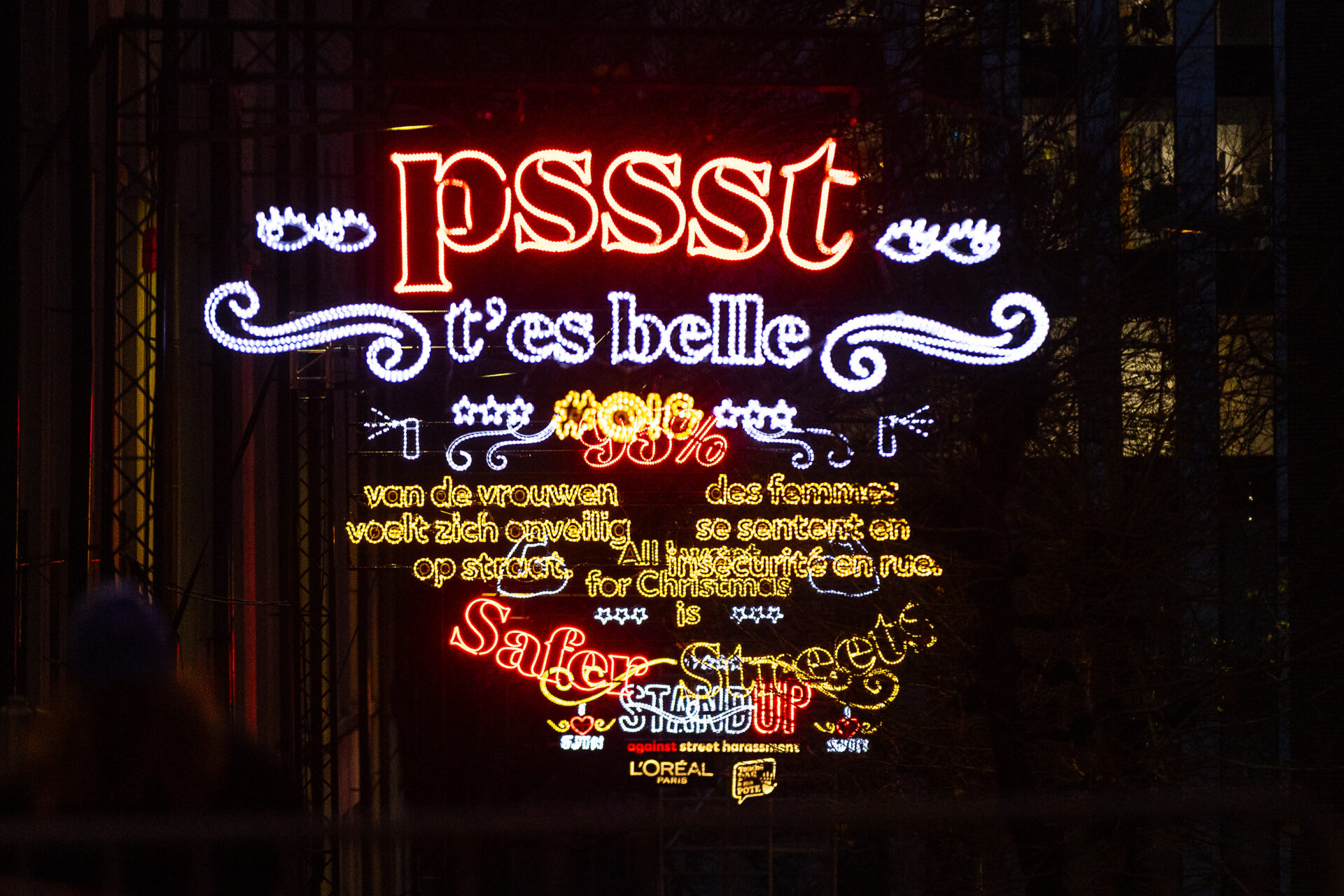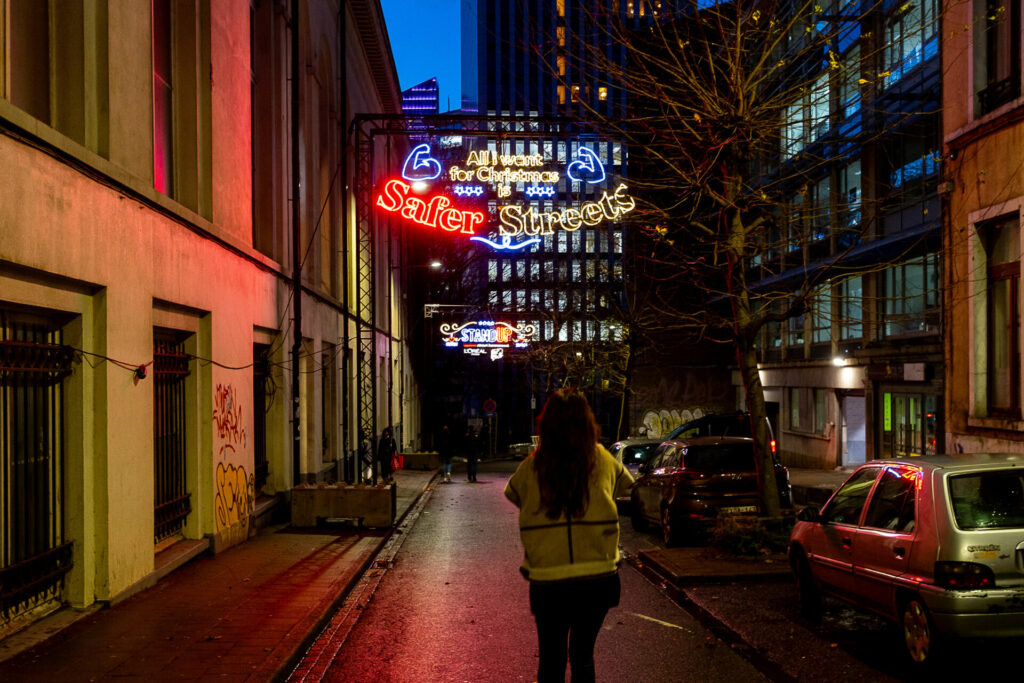In Belgium, 95% of women say they "sometimes" feel unsafe on the streets, while one in six "rarely" or "never" feel safe, according to an iVOX survey of 1,000 Belgian women, as part of the international 'Stand Up Against Street Harassment' campaign.
The survey does not paint a pretty picture of the public space: over four in five women have been verbally or physically harassed on the streets. The conclusions fall in line with results of previous studies: almost every woman encounters street harassment and feels unsafe.
"When I presented 'Femme de la Rue' ['Woman on the Street'] to an eight-member jury 11 years ago, the reaction was still: being approached or talked to in the street, is that so bad? Today, there are all kinds of actions and some police zones provide training on street harassment," said documentary maker Sofie Peeters, who brought the issue to light in 2012.
"There has been great recognition of the issues, so it would be wrong to say that nothing has changed. But street harassment is often linked to a metropolitan context. These new figures show once again that Brussels remains the root cause."

Brussels' street harassment awareness campaign. Sign reads: 'Pssst, you're beautiful. 95% of women feel unsafe on the streets.' Credit: Belga / James Arthur Gekiere
While one in five women in Belgium have previously been followed on the streets, this figure rises to one in three in Brussels. "There are neighbourhoods that women avoid after a certain hour. That can never be the intention."
Women take various measures to try to keep themselves safe, such as carrying pepper spray, more 'conservative' clothes, or holding their keys between their knuckles when walking home. However, the feeling of insecurity remains, and has much to do with policy choices.
"Street lighting is being turned off to save energy, but research shows that lighting helps with the sense of security. In fact, fewer buses at late hours also have an impact," Peeters explained. "Because then women go on foot or by bike anyway, because not everyone can afford a taxi. The associated feeling of insecurity is an indirect consequence of policy choices."

